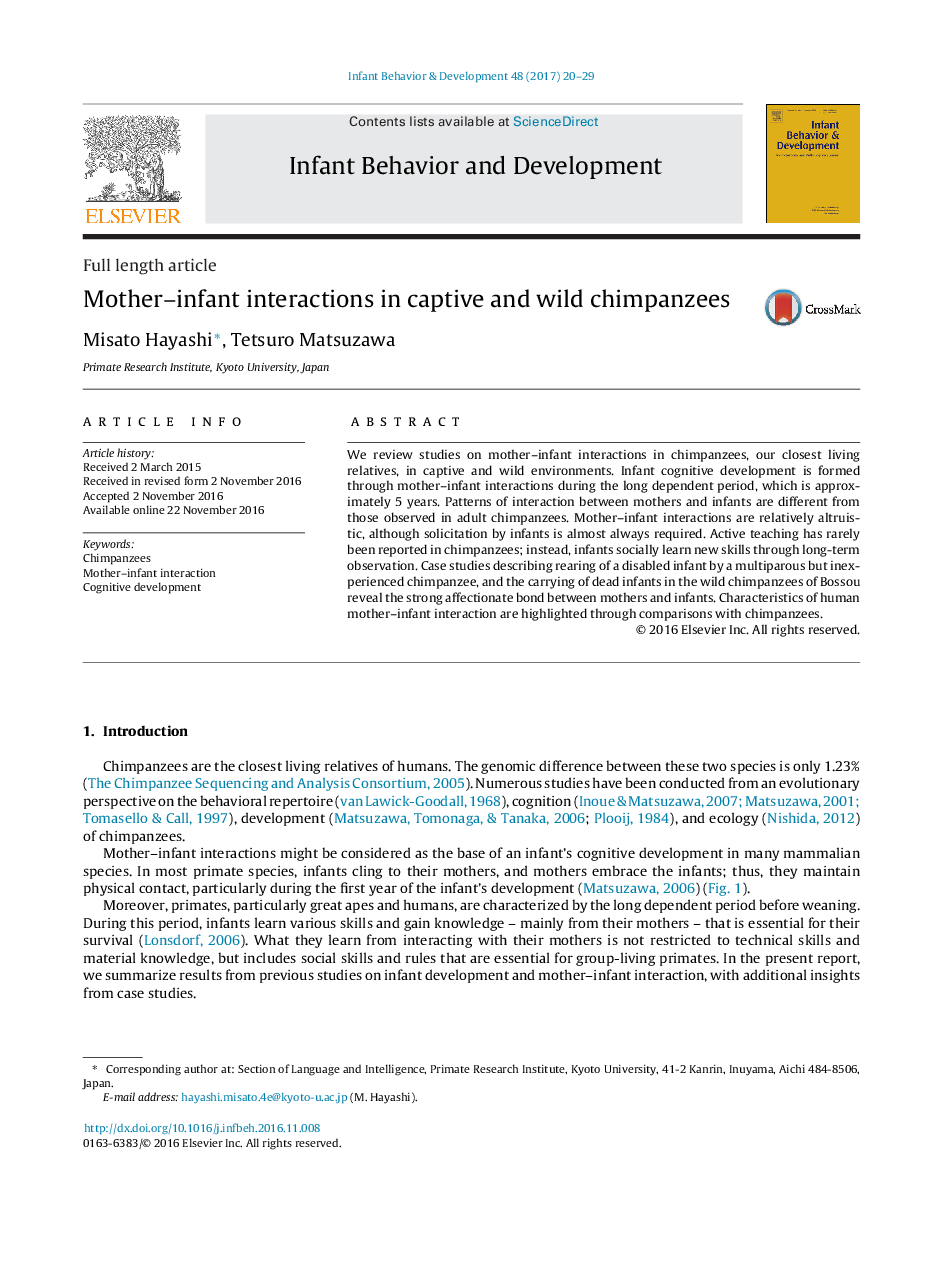| Article ID | Journal | Published Year | Pages | File Type |
|---|---|---|---|---|
| 5039846 | Infant Behavior and Development | 2017 | 10 Pages |
â¢Mother-infant interaction was investigated in captive and wild chimpanzees.â¢Mother-infant interaction was more altruistic but needed solicitation from infant.â¢Active teaching was rare and long-term observation needed for social transmission.â¢Strong affectionate bond between the mother and infant chimpanzees was confirmed.â¢Characteristics of human mother-infant interaction were highlighted.
We review studies on mother-infant interactions in chimpanzees, our closest living relatives, in captive and wild environments. Infant cognitive development is formed through mother-infant interactions during the long dependent period, which is approximately 5 years. Patterns of interaction between mothers and infants are different from those observed in adult chimpanzees. Mother-infant interactions are relatively altruistic, although solicitation by infants is almost always required. Active teaching has rarely been reported in chimpanzees; instead, infants socially learn new skills through long-term observation. Case studies describing rearing of a disabled infant by a multiparous but inexperienced chimpanzee, and the carrying of dead infants in the wild chimpanzees of Bossou reveal the strong affectionate bond between mothers and infants. Characteristics of human mother-infant interaction are highlighted through comparisons with chimpanzees.
